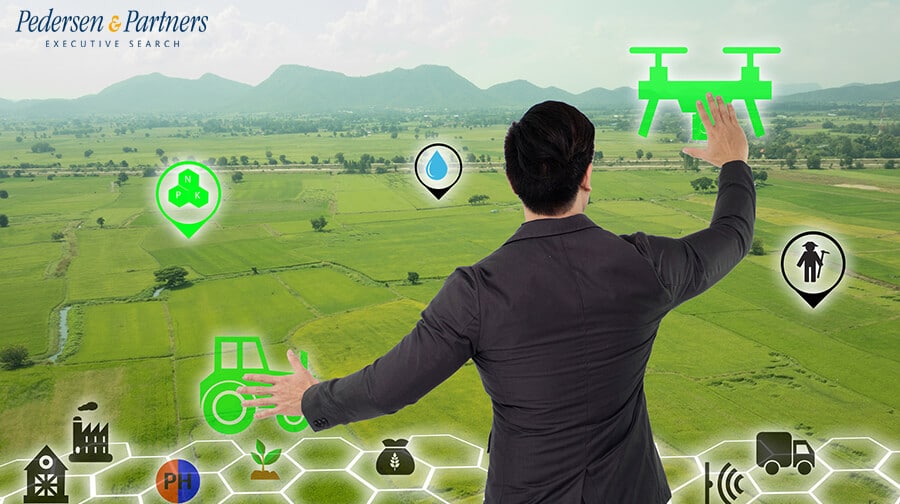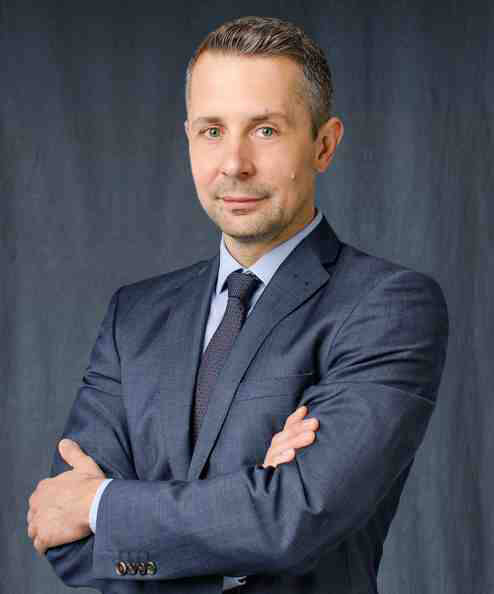The future of agribusiness recruitment in Ukraine, “AgroPortal.ua”
Kiev, Ukraine – Ukraine’s agricultural industry has changed dramatically over the past decade, largely due to technical progress – as has its management.

As researchers work out how to grow bigger harvests, agribusinesses need to seek out competent managers, agronomists, and machine operators who are flexible enough to quickly respond to changes.
It is therefore very important to understand the way in which agricultural sector professions will change over the next decade, the principles underpinning the changes, and what agribusinesses should be prepared for. It is believed that agricultural companies will soon need to hire corporate trainers in charge of memory development, since even mid-level managers will need to memorise and handle large amounts of information.
What could these trends lead to?
It is likely that all of the manual labour professions consisting of simple and repetitive actions will soon become redundant. There are already tractors that can drive without drivers, and drones that determine the condition of crops and the quality of the soil.
There will be no place in this new business world for employees who are unable to learn quickly, acquire new skills and improve them in order to work with more complex processes, programmes and mechanisms. Machine operators and stockbreeders are the most vulnerable positions, as these make use of automated processes to a much higher degree, and this could easily lead to their disappearance. The number of IT employees will increase, but administrative jobs related to data collection, data processing and the provision of information on standard queries will be eliminated, and most of these processes will become standardised and automated.
The writing is on the wall for all positions where the employee's actions are algorithmised and repeatable, and do not require creativity, emotional interaction or unconventional communication. However, there will be opportunities for people with a creative approach, emotional intelligence and communication skills, because a machine cannot persuade someone to hold negotiations or close a deal. Managers will need to develop themselves three times faster than they do now.
In the Ukrainian agricultural sector, many people are currently involved in the process of monitoring and regulating land issues. Land reform will inevitably lead to a more civilized and transparent land market, releasing a large number of people who previously dealt with this issue, and the same will happen to the employees of legal departments. The resulting mass unemployment of workers with low qualifications is likely to become a huge social problem in Ukraine, and the Government needs to work on reforming the education system straight away.
Many Ukrainian agribusiness employees achieved their positions due to the existence of nepotism and the underground economy, but automated processes and staff development will take place as this situation resolves. Young people therefore need to understand that they will no longer be competitive as employees unless they apply hard work and dedication. Major enterprises are already visiting universities, selecting half a dozen promising agronomy students for scholarships, and then hiring them if their grades prove up to scratch. The same is true for IT specialists and machine operators, and I believe that the largest agro-holdings will create their own training institutions in due course.
Who will be in demand in the agro-industrial complex over the next decade?
- The growth of technology and online systems will create a need for the continuous training and professional development of employees, which will in turn create a demand for internal training staff and memory training.
- There will be a need for a new generation of highly skilled machine operators, who will not only control the operations of the particular unit of equipment they are responsible for, but also control various self-operating equipment units. Perhaps they will need basic programming knowledge to be able to reconfigure and update their own software.
- New types of robots, equipment and systems will require constant and uninterrupted communication, which will lead to the emergence of a specialist responsible for the stable operation of communication channels.
- There will be an increase in internal IT staff with deep knowledge of agricultural business processes.
- Specialists in vertical agriculture will be engaged in growing products within the landscape of high-rise urban buildings.
- Agronomists will specialise in the cultivation of genetically modified crops.
Finally, one of the main factors which will affect the development and implementation of technologies is the ratio between the costs of human labour and the cost of automating these processes.
 Vladimir Kolomoets is a Client Partner and the Country Manager for Ukraine at Pedersen & Partners. Mr. Kolomoets has more than 15 years of extensive experience in the field, with over 300 Executive Search and recruitment assignments across all practice groups. He puts a particular emphasis on the Industrial (Heavy Industry, Mining, Metallurgy, Agribusiness), Telecommunications, Technology, and Consumer Products sectors across the CIS region. Prior to re-joining the firm, Mr. Kolomoets held senior roles with two international Executive Search firms in which he served as Partner and Client Manager.
Vladimir Kolomoets is a Client Partner and the Country Manager for Ukraine at Pedersen & Partners. Mr. Kolomoets has more than 15 years of extensive experience in the field, with over 300 Executive Search and recruitment assignments across all practice groups. He puts a particular emphasis on the Industrial (Heavy Industry, Mining, Metallurgy, Agribusiness), Telecommunications, Technology, and Consumer Products sectors across the CIS region. Prior to re-joining the firm, Mr. Kolomoets held senior roles with two international Executive Search firms in which he served as Partner and Client Manager.
Pedersen & Partners is a leading international Executive Search firm. We operate 56 wholly owned offices in 52 countries across Europe, the Middle East, Africa, Asia & the Americas. Our values Trust, Relationship and Professionalism apply to our interaction with clients as well as executives. More information about Pedersen & Partners is available at www.pedersenandpartners.com
If you would like to conduct an interview with a representative of Pedersen & Partners, or have other media-related requests, please contact: Diana Danu, Marketing and Communications Manager at: diana.danu@pedersenandpartners.com
